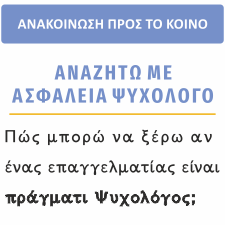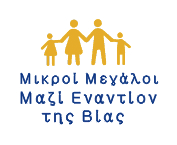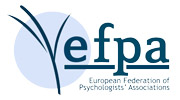- Eπαγγελματική εκπαίδευση Ψυχολόγων σε συνεργασία με το Institute for Coping with Trauma. Πρόγραμμα εγκεκριμένο από την Γερμανική Ακαδημία Ψυχολόγων.
- Εκπαιδευτικά σεμινάρια υπό την αιγίδα της Standing Committee on Disaster, Crisis and Trauma Psychology της EFPA.
Εθελοντικό Έργο :
- Μόνιμη Επιτροπή Ψυχολόγων για την Αντιμετώπιση Καταστροφών, Διαχείριση Κρίσεων και Ψυχικού Τραύματος
- Μονάδα Αντιμετώπισης Καταστροφών, Διαχείρισης Κρίσεων και Ψυχικού Τραύματος. Συμμετέχουν επαγγελματίες ψυχολόγοι μέλη του Σ.Ε.Ψ. και φοιτητές ψυχολογίας του Σ.Ε.Φ.Ψ.
1999 : Η Μονάδα Ψυχολογικής Υποστήριξης παρείχε υπηρεσίες μετά τον καταστροφικό σεισμό της Αθήνας στο Δήμο Αχαρνών, σε συνεργασία με το Συντονιστικό Κέντρο του Υπουργείου Υγείας και τους φορείς της Τοπικής Αυτοδιοίκησης .
2007 : Τηλεφωνική Γραμμή Ψυχολογικής Υποστήριξης για τους πυροπαθείς, σύμφωνα με τα Ευρωπαϊκά πρότυπα και τη Διεθνή πρακτική. Η Γραμμή ήταν ενταγμένη στο Επιχειρησιακό Σχέδιο του Εθνικού Κέντρου Επιχειρήσεων Υγείας του Υπουργείου Υγείας.
Ομάδα εργασίας για την διαχείριση κρίσεων και φυσικών καταστροφών
Εκπρόσωπος η κ. Βασιλική Μπουκουβάλα
Standing Committee on Crisis and Disaster (2005)
Standing Committee on Crisis and Disaster (2007)
Επιστολή Αντιμετώπισης Καταστροφών Διαχείρισης Κρίσεων και Ψυχικού Τραύματος.
Association of Greek Psychologists – Post disaster crisis intervention- Athens earthquake 1999.(doc)
Over the past 25 years, there has been an increasing awareness of the impact of disasters on the civilian population. Through graphic media coverage these events touch us all and gradually the needs of survivors and bereaved alike have been addressed by the professional community. Parallel with this increase in interest for disasters, the attention to the effects of day to day crises and traumas on individuals, families and smaller groups have risen. Psychosocial responses by health personnel and community agents following events such as rape, armed robberies, hostage situations, violence, sudden bereavement etc., has gradually become part of human service delivery and part of what is expected from citizens throughout Europe.
The European Federation for Psychologists’ Associations (EFPA) formed a Task Force in 2001 to address crises, trauma and disasters, and this task force became a standing committee in 2005.
In addition to making recommendations concerning the psychological input to disaster planning and disaster response, this committee has given consideration to Quality Standards for Psychological Interventions in Disaster and Crisis. The Standing Committee recognises that psychology as a science and as an applied profession has a great deal to contribute to this field. At the same time, it recognises that much of the delivery of services to those affected directly and indirectly by disasters will be by other professionals and lay people involved in Non Governmental Organizations. The role of psychology is both to provide direct services based on sound psychological principles and sound evidence base, as well as to provide good quality training to these other groups.
This website will host information of relevance to psychologists and the public concerning the areas of crises, trauma and disasters, and communicate information that can serve to improve the situation for those who are affected by such events. We aim to set up links to relevant websites, list important new research information and literature, and keep you updated on the work of the Standing committee.
We welcome comments and information.








